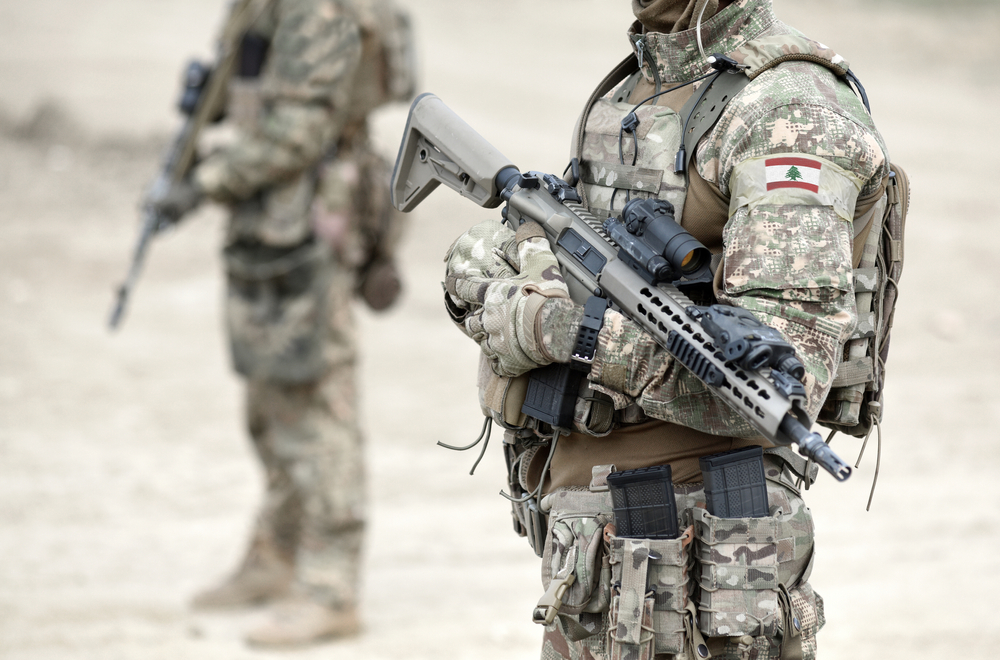The impact of terrorist kidnappings: lessons from Arsal, Lebanon
XCEPT Policy Brief
By Dr Rajan Basra and Dr Craig Larkin
In 2014, jihadist groups overran the town of Arsal on the border between Lebanon and Syria. The Lebanese Army launched a counter-offensive, and eventually the militants retreated. It soon emerged that, during the battle, 38 people from the Lebanese Armed Forces (LAF) and the Internal Security Forces (ISF) had been kidnapped and taken hostage.
Kidnapping is a well-established terrorist tactic, whether for ransom, to secure the release of prisoners, or pressure for changes in political strategy. However, its effects on its victims and their families are often overlooked. How does the kidnapping of their loved ones affect victims’ families and their attitudes towards the state, justice, and revenge? This Policy Brief examines these issues by drawing on interviews with 30 families who had loved ones kidnapped in Arsal in 2014 and held hostage by the Islamist groups Jabhat Al-Nusra and Islamic State (IS).
 Credit: Shutterstock/Bumble Dee.
Credit: Shutterstock/Bumble Dee.
Key Findings:
Victims’ families feel just as aggrieved by the Lebanese government as they do by the terrorists who kidnapped their loved ones. The families blame the Lebanese state for its complacency in the build-up to the kidnappings, its botched military response, and prolonged negotiations. They view the state’s inaction as causing unnecessary and avoidable suffering.
Perceiving the government as lethargic and inactive, families filled the vacuum and acted as go-betweens with the hostage takers. Families took it upon themselves to be in direct contact with the Islamists and relay their demands to the Lebanese authorities, essentially conducting do-it-yourself conflict mediation.
The words and actions of politicians during a crisis had longstanding adverse effects on victims. Families described how abandoned, humiliated, and wounded they felt after a senior minister accused the hostages of being defectors, suggested they should not receive a pension, and ordered the repression of the families’ protests at the government’s handling of the hostage crisis.
Symbolic concessions were used to positive effect when interacting with the Islamist militant group Jabhat Al-Nusra. The Druze political leader, Walid Jumblatt, made a public statement declaring that Nusra were not terrorists but revolutionaries. The statement had no apparent material benefit for Nusra. Yet, it profoundly impacted how they treated their Druze captives: the hostages were granted greater contact with their families and their conditions improved.
Despite being a regional and national crisis, many of the conflict’s dynamics were local and personal. Nusra’s decision to execute one hostage was partly driven by personal revenge: the Shia captive, Ali Bazzal, had eloped with a Sunni woman from Arsal. Her brothers were members of Nusra who disapproved of the marriage; when Bazzal was captured, they saw it as an opportunity to settle the score. This reasoning was absent from Nusra’s public justifications for his execution. Furthermore, the sister of a Nusra commander was imprisoned in Syria; her potential release was crucial leverage, allowing the hostage negotiation deal to be concluded.
In the absence of the state’s enforcement of justice, some victims engaged in vigilante justice. Several families reported how they took their revenge during the crisis by carrying out reciprocal kidnappings; one family also murdered someone they held to be responsible for the execution of their son. Regardless of their level of involvement in vigilante justice, interviewees broadly supported revenge in the absence of state justice.
Victims want greater material support as well as recognition of the suffering and trauma they endured. One major grievance against the authorities was how abandoned they felt in the aftermath of the hostage crisis; financially, the compensation was considered pitiful, and the psychosocial support was seen as a box-ticking exercise.
Policy Implications:
Create comprehensive and holistic support programmes for the victims of kidnappings. The short-, medium-, and long-term effects of the kidnapping crisis show the need for dedicated and tailored support for the victims of terrorism. There is a need for psychological, emotional, spiritual, financial, and material support. Each family’s situation is unique and requires tailored interventions; support should be extended to the hostages’ family members, who are also victimised. Similarly, support should also be offered to children directly affected by hostage events to mediate and safeguard against generational trauma and psychological damage.
Analysis of events should also include a localised, contextual understanding. The hostage crisis was simultaneously regional, national, and local. Without knowledge of the local context, various developments would otherwise appear as a surprise – though with local knowledge, they are logical and even probable. In the Arsal hostage crisis, local dynamics influenced the execution of hostages, the granting of visits to families of the captives, and the negotiations. A granular understanding of the personalities, families, and locations involved affords analytical clarity and supplements the national and regional perspectives.
When interacting with violent non-state actors, it may be important to make tactical symbolic concessions. To do so, it is necessary to understand antagonists’ motivations, rationale, and grievances, and the symbolic concession may only take the form of public statements. While this may cost political capital for those granting the concessions, it can provoke conciliatory gestures. In Arsal, this proved successful when dealing with Islamist militants from Jabhat Al-Nusra. Symbolic concessions were not attempted with IS.
It is essential to establish a centralised, coordinated state response to hostage crises. This must involve close coordination and briefing with hostage families, precise and targeted negotiations with the hostage takers, and minimising family interaction with the hostage takers to safeguard them from coercion, manipulation, and abuse. A more proactive and state-centric approach will allow for greater clarity in media messaging and news briefings and avoid political statements that have not been collectively agreed upon or signed off on.
Political leaders should be mindful of their words and actions when interacting with the media or directly with victims. During the hostage crisis, families were especially aggrieved with how some politicians spoke about their loved ones and the prospects for their release. The families’ welfare was not solely dictated by receiving proof of life or positive news regarding the hostages: even for those hostages who were returned alive, the comments of one government minister have had a longstanding negative effect, leaving a feeling of bitterness and resentment. In short, authorities must let victims know they are on their side, which should influence all aspects of any communications strategy.
There is a need for an official Lebanese public enquiry into the Arsal hostage crisis to establish factual accounts of the events, hear testimonies from hostages and their families, and acknowledge State failings. It can also be used to establish best practices for the Lebanese authorities to follow in hostage scenarios. As the Arsal kidnappings were but one crisis in a cascade of political, social, and economic crises that Lebanon has experienced in the past two decades, it can be an opportunity to address widespread mistrust and ongoing communal grievances against the Lebanese state.
This publication was produced as part of the XCEPT programme, a programme funded by UK International Development from the UK government. The views expressed do not necessarily reflect the UK government’s official policies.


